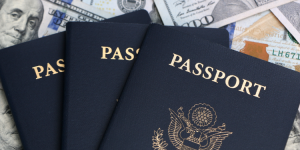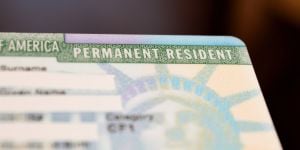
Multiple countries on all continents offer residence permits to retirees who have a secure source of passive income from abroad. A retirement visa allows elderly expats to enjoy the country's lifestyle and boost its economy as consumers without putting pressure on its public services.
Retirement visas come under many names. They can also be called non-lucrative visas, passive income visas, pensionado/jubilado visas (in Spanish), elective visas and person of independent means visas. Their basic criteria in every country is financial independence deriving from pensions, rent, inheritance, annuities, social security benefits, reverse mortgages, and other investment returns from abroad. Other requirements in most countries are a certain amount in savings, a medical certificate, and a clean police record.
Countries with weaker currencies and costs of living, especially in South America and Asia, tend to be the ones with lower passive income requirements. Portugal also stands out as a country with a very affordable retirement visa.
Retiring in Central and South America
Colombia
The M-11 Retirement Visa allows you to live in Colombia for 3 years. This visa can be renewed an unlimited number of times, and you can also apply for permanent residence after having had it for 5 years. The age criterion is different for men and women – 65 years old for men, but only 57 years old for women.
The passive income threshold required is thrice the minimum salary in Colombia. As such, it can change every year. In 2022, the threshold is 750 USD per month. Other restrictions are that you cannot travel outside of Colombia for more than 6 consecutive months, and that you are ineligible if you suffer from mental illnesses like PTSD or schizophrenia (as attested on your medical fitness certificate). You also need a health insurance policy. No information is available on government websites about whether you can work with this visa or not.
Mexico
The Permanent Resident Visa of Mexico, like the name says, allows you to stay in Mexico indefinitely. The age of eligibility depends on the age of retirement back in your home country.
As a permanent visa, its financial requirements are naturally quite high. You need to show that you earned at least 4,000 USD (before tax) in the last 6 months. Your bank account should show an average monthly balance of around 160,000 USD over the year prior to application. These savings are important given that you won't be allowed to derive any income, through work or other means, within the Mexican territory.
There also exists a Temporary Residence Visa of 4 years. It doesn't explicitly target retirees, but the latter can meet the criteria through economic solvency or real estate investment. You must own property in Mexico worth at least 6.9 million pesos (about 345,000 USD), get a monthly passive income of 2,6000 USD, have 43,200 USD in your bank account over the past year, or own investments worth the same amount (43,200 USD). This visa needs to be renewed every year until it reaches a maximum of 4 years.
Mexican public healthcare is free for all legal residents, including retirees with the two aforementioned visas. So you don't necessarily need to buy private insurance.
Argentina
The Pensionado Visa stands out for having an exceptionally low passive income requirement – only 6,000 USD per year! It is valid for 1 year, but it can be renewed for up to 3 years. After that, expats need to apply for permanent residence. Like in Colombia, the age requirement depends on your gender: it's 65 for men but 60 for women.
A big perk of being a retiree expat in Argentina is that, like in Mexico, you have the right to public healthcare – even tourists can use it free of charge! Another advantage is that you can open a business or work as a self-employed individual in Argentina, including with Argentinian clients or partners. You are only barred from being an employee.
Belize
To apply for the Qualified Retirement Program (QRP), you need to be at least 45 and be a member of a list of qualifying countries – the United States, all EU and Commonwealth countries, all South American countries, and specific Asian and Pacific countries are included in it. The detailed list can be consulted on the website of the Belize Tourism Board.
As for income, you need to earn at least 24,000 USD/year or 2000 USD/month. You must receive this foreign passive income only in a limited number of approved currencies (US dollars, Canadian dollars, British pounds or euros), and it must be deposited into a Belizean bank. You can use Belize public hospitals, but issues with healthcare quality (e.g., malfunctioning equipment) make it safer to have private insurance so that you can resort to clinics.
The QRP needs to be renewed every year. Other restrictions are that you need to remain in the country for at least 30 consecutive days a year, cannot buy non-residential land and are barred from conducting business with residents of Belize or working. On the plus side, your income from abroad is 100% tax-free, and you have the right to invest in the country. Bringing your personal effects from abroad in your first year is also free of import and inheritance taxes.
Ecuador
The Jubilado Visa is a 2-year residency permit that is available for expats who are at least 65 and earn three times the minimum wage (in 2022, it adds up to 1,275 USD a month).
Three big advantages are that the country uses the US dollar as currency (no tricky conversion rates or wire transfers!), that the visa allows you to work in the country, and that you can travel out of the country for as long as you want. You'll also receive the same benefits as all senior citizens in the country, like lower taxes, reduced transport fees and healthcare deductions, even if you need private health insurance. The Jubilado Visa can be renewed indefinitely as long as you keep meeting the requirements.
Panama
Its Pensionado Visa is one of the most attractive ones around the world. The age requirement is only 18, you must receive a monthly passive income of 1,000 USD and the visa is permanent. If you buy a property worth 100,000 USD in the country, your monthly income requirement is reduced to 750 USD. You must have health insurance and must obligatorily apply via a Panama-based lawyer.
As a country known for low tax rates, it's unsurprising that the Panama Pensionado Visa offers tax benefits. With it, you can buy a tax-free vehicle every 2 years and are exempt from import tax when you ship your belongings at the time of relocation. The visa also gives you a long list of discounts: 25% on utilities, 30-50% on hotel stays, 25% at restaurants, 25% on air tickets and 30% on other types of transport, 50% on entertainment (cinema, concerts, etc.), 10-20% on healthcare (including medication, dental care and eye exams), 20% on professional and technical services, 15% on loans, 1% on mortgages for a personal residence, and 50% on the closing costs of house loans.
Nicaragua
The Pensionado Visa has a low age and income requirement. You need to be at least 45 and passively earn 600 USD a month. The visa lasts only 1 year but can be renewed indefinitely. You can also convert it to a permanent resident visa after 3 years.
Like Panama, Nicaragua offers many tax incentives to expats. You pay no taxes on out-of-country earnings, on the importation of a new vehicle every 5 years, on the sale of the said vehicle to another person, on purchases to build/furnish your business up to a value of 50,000 USD, and on the import of household goods for personal use up to 20,000 USD. You also benefit from universal public healthcare as an expat.
In general, you cannot be employed locally or learn in the local currency (the cordoba). But you can invest in businesses and real estate. Under exceptional conditions, you can work when you are considered a valuable investor or job-creator by the Ministry of Economy and Industry. Examples of exceptional conditions are owning and developing land worth at least 100,000 USD or running a hotel that creates local jobs and attracts tourists. You will have to present a concrete plan to the ministry to obtain a special work permit.
Aruba
This small Caribbean island, which is a constituency of the Netherlands, has a visa program for retirees who are at least 55. The passive income requirement is very high: you must earn at least 56,200 USD a year. You should also buy/own a home on the island and cannot rent accommodation. The medical requirements are also stringent, for your certificate needs to show that you are HIV-negative and have no mental illnesses. Of course, you also need health insurance.
Retiring in Asia
Philippines
The Special Resident Retiree's Visa (SRRV) is open to people as young as 35. However, bear in mind that these younger retirees under 50 need to pay higher fees.
If you are 35-49 (SRRV Smile), you need to make a one-time deposit of 50,000 USD. In comparison, if you are a 49+ expat with a pension (SRRV Classic), your deposit is only 10,000 USD, and if you're 49+ but don't have a pension (also SRRV Classic), you need to deposit 20,000 USD. The deposit looks worth it when you consider that this is a permanent visa. In addition to the deposit, you need to have a monthly passive income of 800 USD for all SRRVs.
New SSRV applications were suspended during the pandemic. SRRV Classic applications resumed in May 2021, but SSRV Smile is still currently suspended. You have to wait for further updates from the Philippines Retirement Authority if you are under 50.
There are actually two additional special SRRVs: SRRV Human Touch and SRRV Courtesy. The first is for ailing retirees who require special medical care. They need to have a higher monthly passive income of 1,500 USD. The second is for former diplomats, international organization employees and military officers over 49 who worked in the Philippines at some point. It has a much lower visa deposit of 1,500 USD. Its monthly income requirement is 1,000 USD and it also automatically grants residency to 2 dependents free of extra charge. Both of these “special” SRRVs are currently accepting applications.
You can enjoy many tax benefits with all of the SRRVs. Your pension and annuity will be 100% tax-free, and you can import personal effects without any customs taxes. Since 2017, SRRV holders can also register with the state health insurance corporation PhilHealth for a premium rate. Last but not least, you can freely work, invest and study in the Philippines with an SRRV.
Thailand
The Non-Immigrant O-A Visa is available to retirees who are at least 50, have 800,000 bahts (around 22,000 USD) in savings and earn a monthly passive income of 65,000 bahts (1,800 USD). Medically, you are ineligible if you are currently undergoing treatment for drug addiction. The visa lasts 1 year but can be renewed indefinitely. You need a health insurance policy and cannot work in any way in Thailand.
Malaysia
The MM2H (Malaysia My Second Home) visa is a hybrid between a golden visa and an independent means visa. Like in the Philippines, there are two age categories: 35-49 and 49+.
The MM2H visa is valid for 10 years and can be renewed indefinitely as long as you keep meeting the criteria. You need to be in Malaysia for at least 90 days a year to not lose your visa.
The golden visa aspect of the MM2H program makes its financial requirements very high. Retirees of both age groups need to earn 40,000 ringgits (about 8,600 USD) per month. In addition, they need 1.5 million ringgits (about 325,000 USD) in liquid assets such as stocks and bonds, and need to deposit 1 million ringgits (about 215,000 USD) in a Malaysian bank. They are allowed to withdraw only half of this deposit to buy property, fund education, or pay for healthcare. Having medical insurance coverage is also a requirement.
Concerning proof of income, those who are 50 or older can alternatively show that they receive a government pension from their home country. This state pension needs to be at least 10,000 ringgits (about 2,100 USD) per month.
While employment is generally prohibited, those over 49 can work part-time (for a maximum of 20 hours/week) if they have specialized skills in some sectors. Their application for part-time work will be reviewed individually by a committee. In addition, any MM2H visa holder can create a new company in Malaysia, as long as they don't run its day-to-day business.
Indonesia
The Retirement KITAS is available for retirees who are at least 55 and earn 1,500 USD in passive income per month. Unfortunately, for now, only nationals from a limited number of countries can apply for it. Among the notable exclusions from the list are China, all of South America except for Argentina, Brazil and Suriname, all of Africa except for South Africa, and all of East Europe except for Austria, Hungary and Bulgaria.
Additional requirements are getting a one-year rental lease and employing at least two Indonesian drivers, domestic helpers, cooks or gardeners. You need to pay each of these workers at least 4.64 million rupees (about 305 USD) per month. You can neither work nor set up a business in the country (to create a business, you need a separate Investor KITAS). You also need health insurance coverage. As for validity, the visa lasts only 1 year but can be renewed up to a maximum of 5 years. After this, you'll have to apply for permanent residency.
Retiring in Europe
Ireland
Those eligible for the Irish Stamp 0 Visa include people of independent means, who can be retired pensioners. The financial requirement is very high, for you need to earn 60,000 USD per year. On top of that, you must have 250,000 USD in savings for any unforeseen expenses.
You cannot use public healthcare, among other public services, so you must be insured. You are neither allowed to engage in any kind of work or business in Ireland. The visa lasts 1 year and can be renewed indefinitely as long as you keep meeting the financial criteria. Of course, citizens of other European Union (EU) and European Economic Area countries (EEA) do not even need this visa. Under freedom of movement laws, they can move to Ireland at any time.
Spain
The financial requirement of the Spanish Non-Lucrative Visa, also targeted at non-EU/EEA expats, is half of that of the Irish retirement visa. You need a yearly passive income of 30,000 USD from abroad. You cannot work in the country, but you can study or do internships (including paid internships!). You must also have private health insurance. The visa lasts 1 year, but it can be renewed for 2 additional years, bringing the total length of stay to 3 stays.
Portugal
In addition to the famous residence-by-investment Golden Visa, Portugal also has a Passive Income Visa called the D7 Visa. It offers multiple advantages over similar visas in other countries. First of all, the income threshold is very low, for you simply need to earn anything above the minimum wage. Currently, the minimum wage is €705 (about 687 USD) per month, but it is set to rise to €760 (about 740 USD) in 2023.
Secondly, the D7 visa is open to any non-EU/EEA citizen over 18. Be careful, though, your income, even as a young person, must be passive (rent, investments, etc.), i.e., you cannot obtain a D7 visa using your salary as a remote worker. For that, you should instead apply for a Digital Nomad Visa. And thirdly, the D7 visa allows you to register for the NHR (Non-Habitual Resident) Tax Regime in order to enjoy lower fiscal rates.
This visa is valid for 2 years, during which you must be in the country for at least 6 consecutive months or 8 non-consecutive months. It can be renewed for a further 3 years. After a total of 5 years, you can then apply for permanent residency or even citizenship.
Retiring in Africa and the Middle East
Mauritius
The Retired Citizen 50+ Years Visa of Mauritius has many advantages. First, it accepts early retirees in their 50s. Second, it has a very long validity period of 10 years. Third, you only need a fairly low yearly income of 18,000 USD per year or 1500 USD per month. Your passive income needs to be credited to a Mauritian bank. And fourth, Mauritius is a low-tax jurisdiction: you will not be taxed on your wealth, your inheritance, or the belongings you're transferring there.
The country has multiple schemes for foreigners to acquire property – the Integrated Resort Scheme (IRS), Real Estate Scheme (RES), Property Development Scheme (PDS) and Smart City Scheme (SCS). Under the IRS, you must purchase a property worth at least 500,000 USD, while the other schemes don't have a minimum investment value. Actually, buying under the IRS is another route to becoming a retired expat in Mauritius: the purchase automatically grants you permanent residency. The same happens when you invest under the PDS, if the investment is at least 500,000 USD.
After 10 years, you can invest 54,000 USD to convert your visa into a 20-year Permanent Residence Permit (PRP). It might seem odd that it has a validity limitation despite the word “permanent.” But actually, as it can be renewed for another 20 years, the total length of stay is 50 years, which can be interpreted as a lifetime. As for public healthcare, it is free for any legal resident, including expats. You are not allowed to work or create a business, but you can invest in existing companies.
South Africa
You can be a retired expat in South Africa under two visas: the Retired Person Visa and the Financially Independent Permit.
The first allows you to stay in the country for 4 years as long as you receive 37,000 rands (about 2,000 USD) as monthly passive income. This visa can be renewed an unlimited number of times. In contrast, the Financially Independent Permit is a one-time permanent visa that allows you to show proof of a net wealth of 12 million rands (about 665,000 USD) instead of proof of monthly income. As for health, you need to have insurance for both visas.
There is no age restriction for either of these two visas, but the Retired Person Visa doesn't allow you to work in South Africa. Meanwhile, as permanent residents, holders of the Financially Independent Permit can freely work, start a business, or study in the country. Holders of Retired Person Visas aren't bound by a minimum length of stay in South Africa, but expats with the Financially Independent Permit need to visit the country at least every 3 years.
United Arab Emirates/Dubai
Given the high cost of living in the UAE, it shouldn't be surprising that its Retirement Visa has very high financial requirements. You need to be 55 and earn 20,000 dirhams, or nearly 5,500 USD, per month. Alternatively, you need 1 million dirhams (about 272,000 USD) in your savings account or buy local property worth 2 million dirhams (about 550,000 USD). The visa is valid for 5 years and can be renewed for an additional 5 years. Two big perks of Dubai are that it is 100% tax-free and that you can access some of the best healthcare in the world, even if it's not free, i.e., it requires insurance.
Retiring in Oceania
New Zealand
The Temporary Retirement Visa allows expats who are 66 or older to live in the country for 2 years. Like in the UAE or Ireland, the financial requirements are very high. You need to have an annual passive income of 60,000 NZD (about 34,000 USD) in addition to having additional savings of 500,000 NZD (about 280,000 USD) and making an investment of 750,000 NZD (about 420,000 USD) in the country, usually a real estate purchase.
All of these three financial conditions above need to be met – you cannot pick only one or two. The visa is clearly aimed at only high net-worth individuals. One perk is that your spouse/partner is automatically included in your visa. You won't need to pay any dependent fee for them. You cannot work with this visa, but you can study for up to 3 months per year.



















